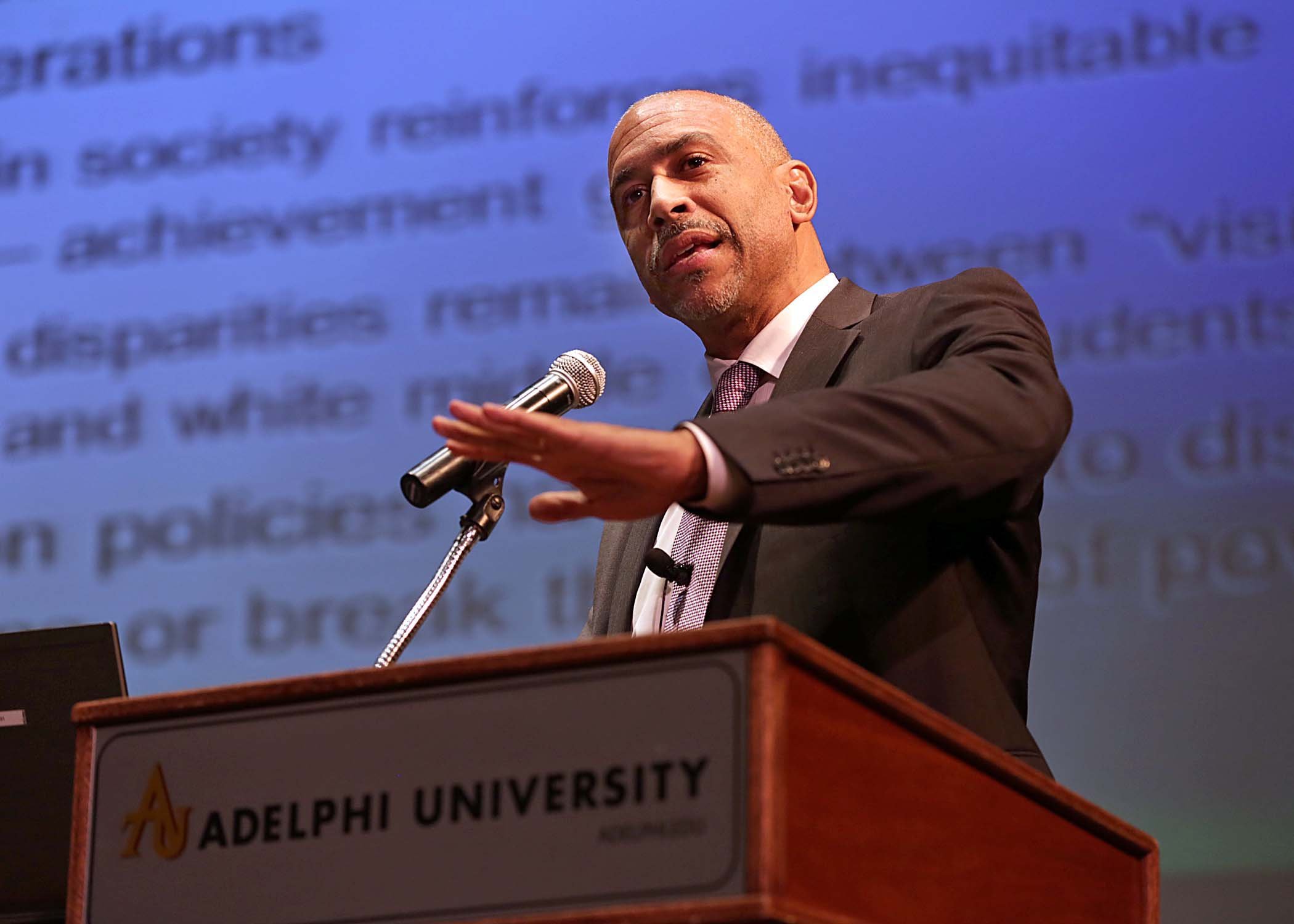Pedro Noguera at Ross School – Part 1
In 2009, Dr. Pedro Noguera, distinguished professor of education at University of California, Los Angeles, and renowned education scholar and activist, spoke on the topic of school culture and how cultural differences should be acknowledged and addressed in the classroom. Below is an excerpt from his presentation.
“THE BEST TEACHERS TEACH THE WAY CHILDREN LEARN.”
I’m going to talk with you today about culture, a concept and a topic which I will acknowledge from the very beginning is ambiguous and difficult to get your hands around because we use the term “culture” in so many different ways. Even during the course of my presentation, I’m going to use it in some different ways.
I have been a teacher and a policy maker myself, although we don’t often think of local school board members as policy makers. I served as president of the school board in Berkeley, California—and I have the scars to show for it—and that’s often where policy is made at the local level. I also do some of that work now at the state and national level. So I have a lot of different vantage points. And probably the one that’s the most humbling of all is that of a parent. I always say that the greatest challenge I face is raising my own children.
What I want to try to do is to address the issues that I think are most critical and most difficult in education. I framed this around what I think is a basic and fundamental question: What does it take to educate the children you serve? I would argue that if you can’t answer that question, you shouldn’t even be doing this work. But it’s not a simple question, because to answer the question, you actually have to know something about the children you serve.
I think that, so often, we make an assumption that we know, and our assumptions inform our actions in our practice. Consequently, there’s a lot of a disconnect between us as educators and the children we serve, because we really don’t understand who they are and what their needs are.
Let me start by saying that the best teachers—and I’ve had a chance to visit lots of schools throughout the country and throughout the world—consistently, the best teachers don’t expect children to learn the way they teach. The best teachers teach the way children learn. If you teach the way children learn, you recognize they don’t all learn in the same ways, and you don’t blame them when they don’t learn. Instead, you start to ask yourself, “What do I need to do differently? What’s not happening here for this child?” Because learning should come naturally for children. When it doesn’t, then we have to ask ourselves, “What’s wrong with the environment? What’s wrong with the way we’ve approached it that has prevented it from occurring?”
Too often, when that’s not happening, when the children are not learning, we say, “Well, what’s wrong with those kids? What’s wrong with that child? What’s wrong with their parents?” That tendency, I would argue, is one of the major obstacles to greater success in education today—the tendency to blame kids and, by extension, their parents.
Click here to watch or read a transcript of Pedro Noguera's full presentation to Ross faculty.
Posted by Archive



